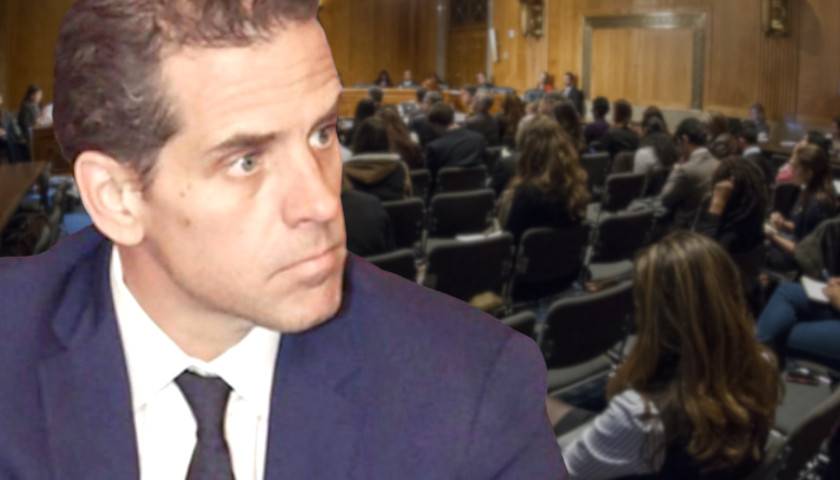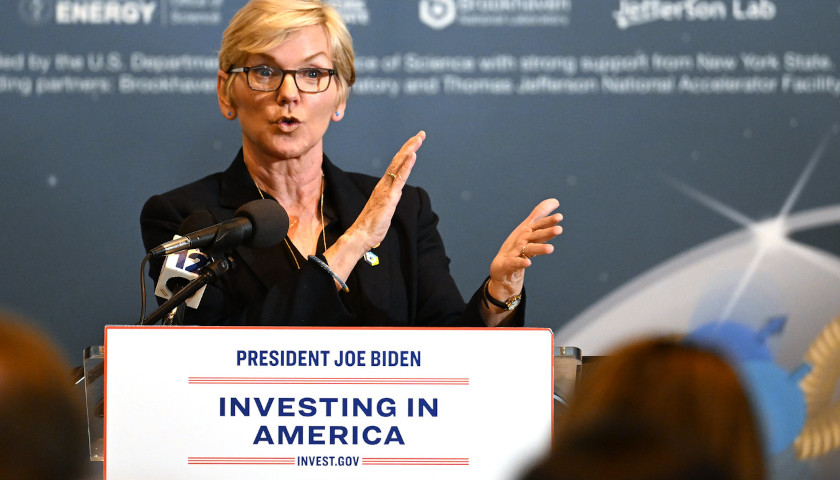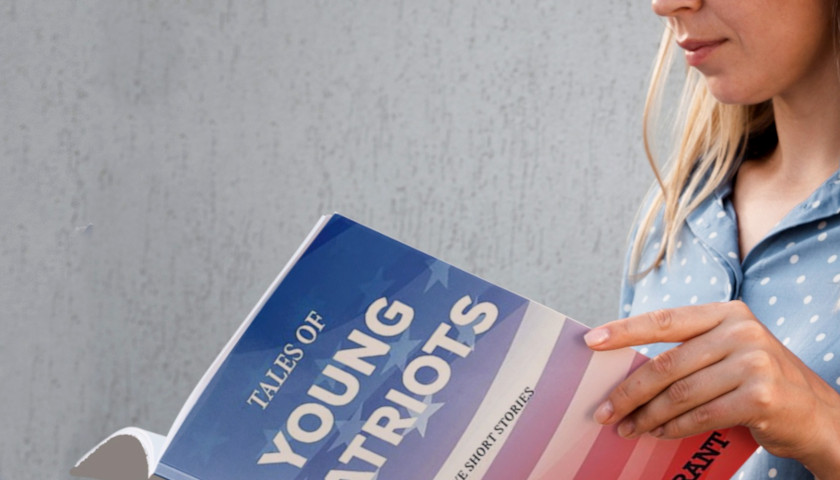by Madeleine Hubbard
Court documents more clearly show what transpired in Hunter Biden’s federal hearing Wednesday in Delaware on a plea deal for federal tax and gun-registration charges. But more questions are arising regarding what the Justice Department included in the deal that U.S. District Judge Maryellen Noreika put on hold.
1. Why would Hunter Biden be given a specially crafted plea deal?
One of the most notable revelations in the transcript, which was obtained Thursday by Politico, is that prosecutor Leo Wise says that the deal was “crafted to suit the facts and circumstances” of the first son’s case.
The plea agreement – which critics called a “sweetheart deal” – would have allowed Biden to avoid prison by pleading guilty to two misdemeanor tax charges relating to nearly $200,000 he owed the IRS, and a diversion agreement for a felony firearms possession charge, which carries a maximum 10-year sentence.
The diversion agreement included a section titled, “Agreement Not to Prosecute,” which ties the diversion agreement to the tax deal by stating how Biden cannot be prosecuted for statements of fact in either one.
That section said that the “United States agrees not to criminally prosecute Biden” for any federal crimes listed in the statements of facts in both the diversion agreement and the separate tax plea deal.
Even Noreika at one point said she did not “understand the scope of” the agreement not to prosecute.
Why would Hunter Biden reach a plea agreement with prosecutors who are still investigating him?
Wise confirmed that there is an active investigation into Biden. But when asked why his team reached an agreement while the probe is ongoing, he told the judge: “Your Honor may ask, but I’m not in a position where I can say.”
3. What charges are the charges for which Biden would have been given immunity under the proposed deal?
Though Wise said his office’s investigation is ongoing, it is unclear whether the deal would have effectively ended it.
Noreika expressed concerns about the constitutionality of the “Agreement Not to Prosecute” section.
The crimes stated as facts in the diversion agreement include how Biden bought a firearm and ammunition in 2018, lied on a federal form at the time about his active drug use, and regularly purchased and used crack cocaine.
The facts in the plea agreement seemingly covered by the “Agreement Not to Prosecute” include details about millions of dollars earned over years of business dealings, including with partners in China, Ukraine, and Romania.
Noreika asked Wise to tell her what the agreement not to prosecute includes.
“So I can tell you what I think we can’t charge,” he replied. “I can’t tell you what the ongoing investigation is. So, for instance, I think based on the terms of the agreement, we cannot bring tax evasion charges for the years described in the factual statement to the Plea Agreement. And I think we cannot bring for the firearms charges based on the firearm identified in the factual statement to the Diversion Agreement.”
4. What did Biden’s attorneys think was covered under the plea deal and why would they think that?
It appears that Biden’s attorneys believed that more was covered in the deal than the Justice Department said in court.
For example, even though foreign companies are listed in the statement of facts, Wise said it would not prevent the government from hypothetically charging Biden under the Foreign Agents Registration Act, which essentially requires those doing business with a foreign “principal” to submit periodic disclosures.
When the judge asked whether there was a “meeting of the minds” on that matter, Biden attorney Chris Clark said: “As stated by the government just now, I don’t agree with what the government said.”
When Noreika asked what the next steps were, Wise replied: “Then there is no deal.”
Later, near the conclusion of the hearing, Noreika said she needs more information before she could accept any plea deal.
“And part of that is making sure that your plea gets you what you think it gets and part of it is making sure that I do justice as I’m required to do in this court,” she said before Biden pleaded not guilty.
At the end of the hearing, Noreika ordered both sides to file briefs explaining the structure of the deal.
The disagreement over what would be protected is especially noteworthy as the House probe into Biden is heating up.
House Oversight Chairman James Comer, R-Ky., said last week that he plans on filing “between six and 10 criminal referrals” against the first son once his committee’s investigation concludes.
5. Why did the plea deal propose giving only the judge the power to bring charges against Biden?
Wise also confirmed that under the drafted agreement, the only way charges could be brought against Biden is if Noreika held a hearing.
“So if I don’t have a hearing or make a finding, no criminal charges can be pursued for the gun charge or any other federal charge within the scope of the agreement not to be prosecuted, right?” she asked.
Wise said he believed that was correct and he acknowledged that it was unprecedented.
“I’m concerned that that provision makes me a gatekeeper to criminal charges and puts me in the middle of a decision as to whether to bring a charge. … Is this even constitutional?” Noreika said.
Clark said he thought it was.
The one filing that all parties agreed upon was Biden’s conditions of release.
Under the conditions that Noreika signed, Biden is forbidden from using drugs and alcohol, but he is allowed to travel internationally with written notice to officials.
If Biden violates any of the release conditions a warrant may be immediately issued for his arrest, the court filing states.
The conditions also require Biden to report to supervision in California and state that he may randomly be required to submit to drug and alcohol testing.
Additionally, Biden must “continue or actively seek employment” and “not possess a firearm, destructive device, or other weapon,” as part of the conditions.
– – –
Madeleine Hubbard joined Just the News as a fast file reporter after working as an editor at Breitbart News.





